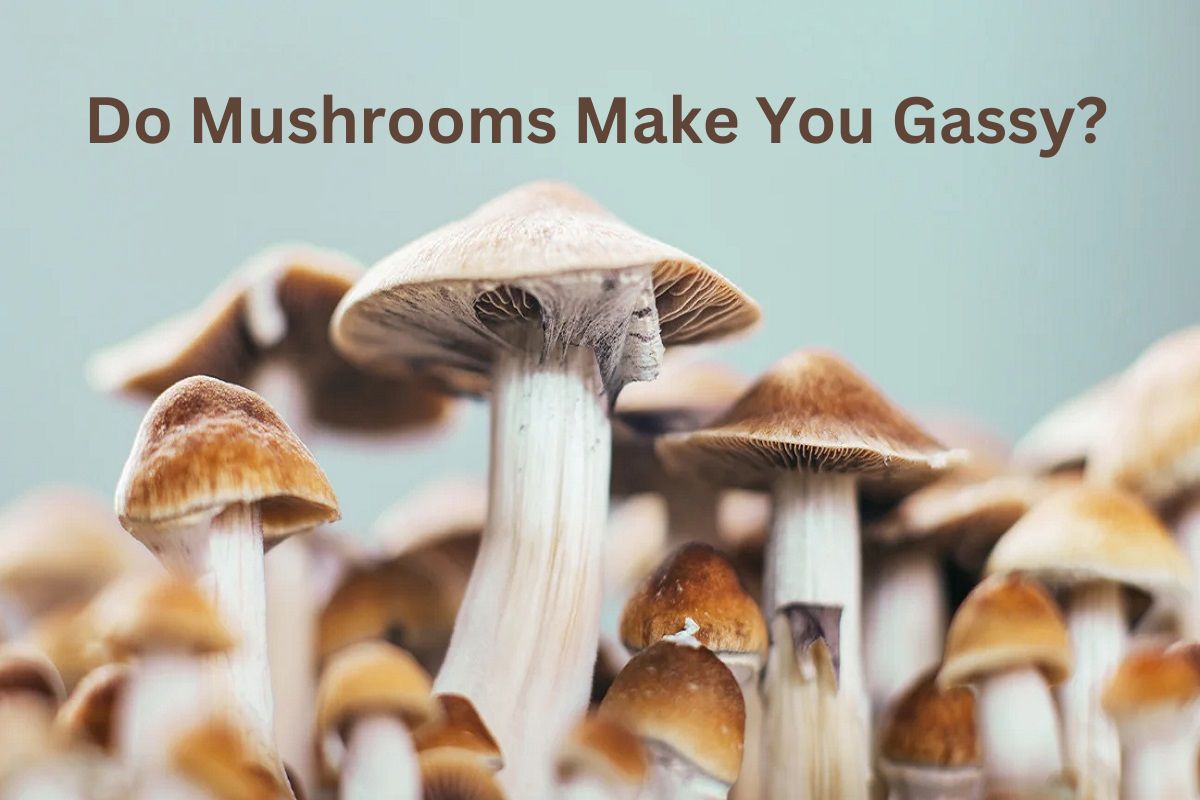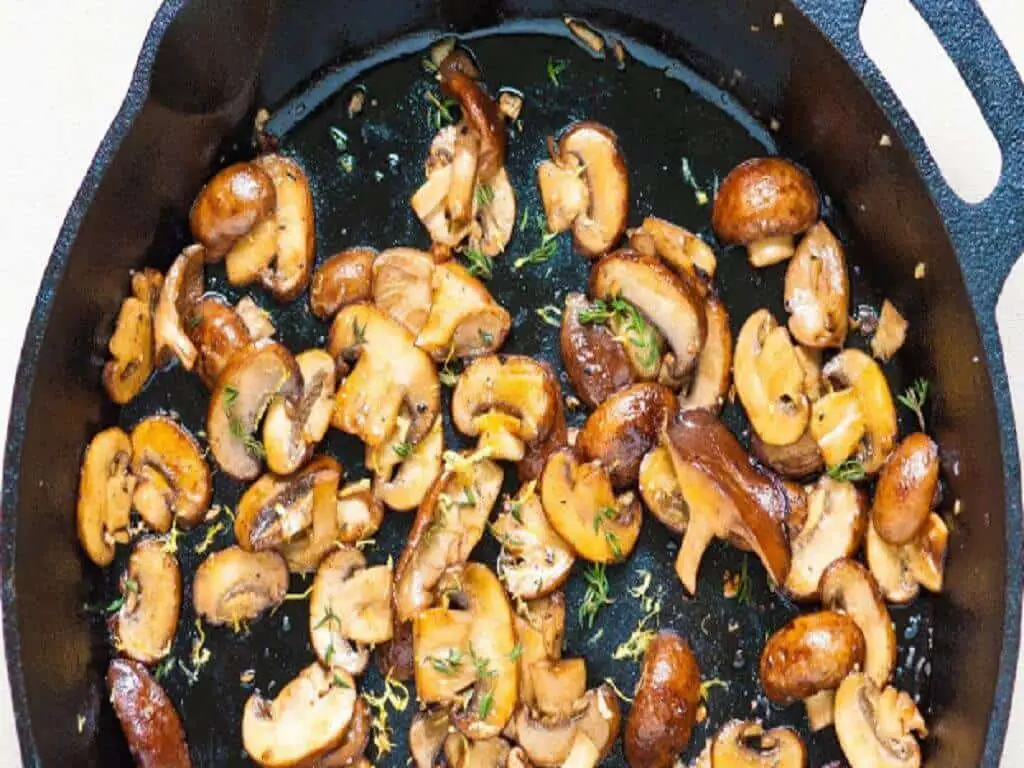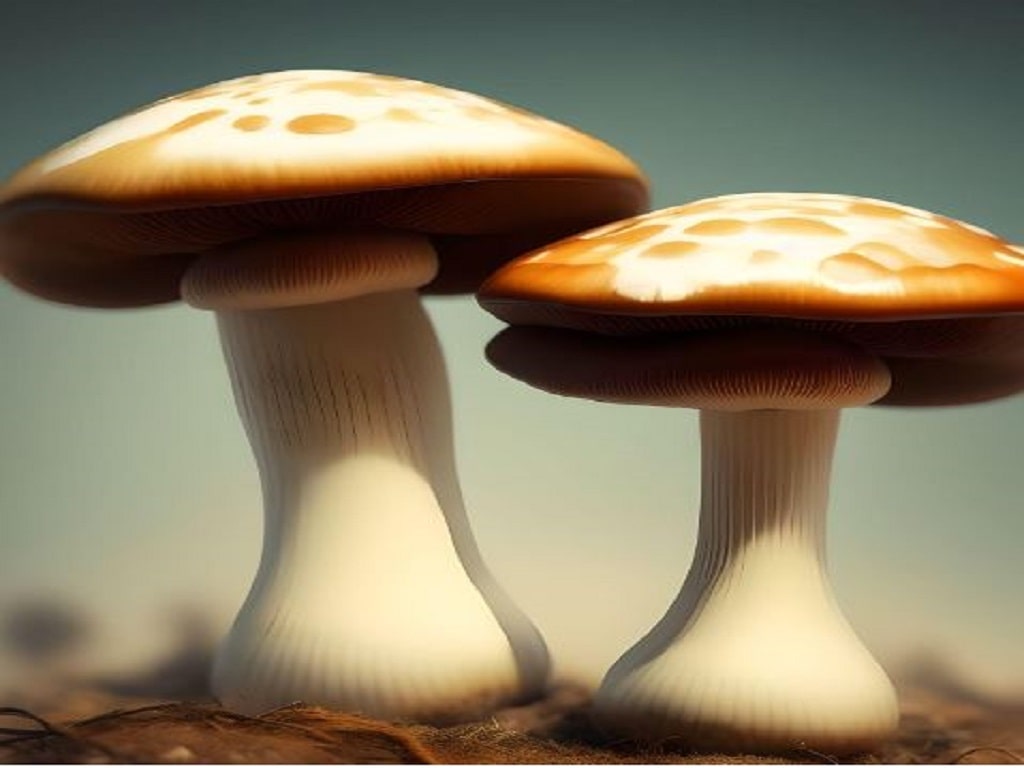Do Mushrooms Make You Gassy?

Mushrooms are a delicious and versatile delicacy found in various settings, including backyard gardens, fields, and forests. For centuries, people have eaten mushrooms as a flexible and varied meal. Vegetarians and vegans favor them as a meat substitute. In addition, mushrooms are a plentiful source of nutrients, such as vitamins, minerals, and antioxidants.
But do mushrooms make you gassy? What specific compounds in mushrooms contribute to gas production?
Well, mushrooms can make you gassy because of their indigestible sugar content. Mushrooms contain mannitol, a sugar alcohol from the polyol family. It can be found in high concentrations in some of the most well-known mushroom types. So, consuming mushrooms may result in gas since the small intestine cannot completely digest these sugars. Instead, it goes through fermentation in the large intestine. Intestinal gas is then created as a result of the fermentation process.
The Sugar alcohol present in mushrooms can also cause gas, but it will not make you drunk because they are not booze. Instead, they are just named after their chemical composition. Keep reading to learn why mushrooms cause gas and how to prevent it.
Does Mushroom Cause Acidity?
With a PH value of about 6 to 8, mushrooms have low acidity and good alkaline characteristics. Therefore, chewing mushrooms properly can reduce the risk of gas. In addition, these edible fungi have thick cell walls, meaning you can only correctly chew and absorb protein in the cells. If you want more information about the link between mushrooms and stomach gas, continue reading.
Can Mushrooms Cause Digestive Issues?
NIH stated edible mushrooms are a good source of dietary fiber since they have chitin, glucans, and proteins in the cell wall. However, some individuals might not have the right amount of digestive enzymes necessary to break down the sugar content of mushrooms.
As a result, these people may experience more severe digestive issues after consuming mushrooms, such as gas, diarrhea, vomiting, and nausea. Edible mushrooms that are too old or improperly prepared can also cause such symptoms; they are frequently mistaken for mushroom poisoning.
Do Cooked Mushrooms Make You Gassy?
Cooking mushrooms increases their nutritional value. Any poisons and carcinogens in mushrooms are also eliminated after cooking. In addition, after being cooked, mushrooms become more palatable for several minerals, including potent antioxidants like carotenoids and ferulic acid.

That being said, cooked mushrooms can trigger gas or make you fart because the sugar in mushrooms takes more time to digest.
Do Portobello Mushrooms Give You Gas?
The mature cremini mushroom variety, portobello, has a strong flavor and meaty texture. As a good source of 15 different vitamins, minerals, and antioxidant phytonutrients, such as copper, selenium, and B vitamins, these mushrooms have few calories and are low in fat.

Eating this kind of mushroom has fewer chances of getting gas unless your digestive system lacks the enzyme to digest it. They are frequently served stuffed, grilled, broiled, and as a meat substitute in burgers and sandwiches. By adding less oil while cooking, you can make it healthier.
Can Mushroom Soup Cause Gas?
Mushrooms are high in soluble fiber, which is helpful with maintaining proper gut function. However, it depends on each person’s tolerance level whether or not mushroom soup is safe for those with gastroesophageal reflux disease.
Nevertheless, you can try this dish because of its mouth-watering taste and high nutrient value. You can enjoy your bowl of mushroom soup or cream of mushroom as long as its core ingredient, “mushroom,” does not cause gas and bloating. If you suffer from gas, reduce eating the soup or stop taking it.
How To Prevent Getting Gas After Eating Mushrooms?
The intestines work hard to digest chitin, mannitol, and trehalose. As a result, up to 5 hours are required for the stomach to process mushrooms.
You can eat mushrooms without worrying about gas by following these simple tips:
- Reduce your mushroom consumption.
- Switch to lower-FODMAP varieties like oyster mushrooms to eat.
What to Do If I Get Gas After Eating Mushrooms?
Mushrooms can sometimes work as a mild laxative. However, if you overeat mushrooms, it can cause diarrhea or gas. That is why you should eat a small mushroom meal to avoid such health consequences. What to do if you get gas after eating mushrooms? You can drink lime water after eating a mushroom meal and this may help reduce bloating and gas. Also, consider doing simple exercises or walking to release the gas. if the condition worsens you must visit a doctor to prevent further health issues.
Do Mushrooms Make You Poop?
Yes, mushrooms can help you poop. It is a good remedy for constipation. The fiber included in mushrooms is beneficial for maintaining a healthy digestive system. Fiber promotes healthy gut flora maintenance, helps to bulk up stools, avoids constipation, and eases bowel movements.
Are Mushrooms Healthier Cooked or Raw?
Because of their hard cell walls, which are primarily made of chitin, raw mushrooms are largely indigestible. In addition, cooking eliminates Agaratine, a toxin naturally present in mushrooms. Considering the food safety process and digestion aspect of the body, the benefits of cooking mushrooms weigh over eating them raw.
What’s the Healthiest Way to Cook Mushrooms?
You can enjoy mushrooms by cooking them differently and adding vegetables or carbohydrates. A study conducted by NIH proved that among all the ways of preparing mushrooms, frying is the best possible way to keep the nutrition intact. In this study, NIH investigated the effects of boiling, frying, microwaving, air drying, and freezing.
-
Boiling:
Among the three cooking methods, boiling mushrooms is less advisable. It retains lipids that are not needed in significant quantities by the body but result in the loss of most nutritional and phytochemical components.
-
Microwaving:
Microwaving mushrooms are popular among many. However, compared to other cooking methods, this study shows that microwave heating enhanced proteins kept phenolics, and lost more lipids than boiling.
-
Frying:
Fried mushrooms taste amazing and are the best way to maintain nutrition. Compared to other cooking methods, frying increased carbs, lipids, and phenolics during the NIH test while keeping more proteins than boiling. Because most of the nutrients were maintained, frying was declared a better method of cooking mushrooms.
Avoid adding too much fat and other components like processed cheese when cooking mushrooms to keep it healthy. Also, remember to properly wash them with a vegetable brush and cold water before cooking or eating.
How Many Mushrooms Per Day is Healthy to Eat?
Mushrooms are known to be a daily food. You can include it in your diet plan if you are not allergic. Mushrooms can be consumed regularly because it provides the necessary nutrients required for the functioning of the human body.

A breakfast high in mushrooms may cause you to feel more satisfied and less hungry, reducing the chance of overeating. How many mushrooms per day is healthy to eat? A maximum of two mediums each day are advised by Mayoclinic.
Nutrition Facts of Mushrooms:
A 100-gram serving of raw mushrooms typically has 22 calories, and cooked mushrooms have 28 calories. The amount of fat is slightly higher in cooked mushrooms. Raw mushrooms have a high fiber content and few calories and fat. Here is the detailed chart of nutrients for raw and cooked mushrooms provided by USDA.
|
Nutrition Name |
Raw Mushroom (100 g) | Cooked Mushroom (100 g) |
| Calorie | 22 Kcal |
28 Kcal |
|
Protein |
3.09 g | 2.17 g |
| Fat | 0.34 g |
0.47 g |
|
Carbohydrate |
3.26 g | 5.29 g |
| Fiber | 1 g |
2.2 g |
|
Sugar |
1.98 g | 2.34 g |
| Cholesterol | 0 mg |
0 mg |
Health Benefits of Mushrooms:
Mushrooms are a nutrient powerhouse with various health advantages and a delightful addition to the food chart. Since traditional medicine has been using these fleshy fungi for therapeutic purposes for millennia, new applications for their use in promoting health and well-being have also been discovered.
The health advantages of mushrooms are numerous and diverse, ranging from immune system-strengthening abilities to possible anti-cancer actions. In light of this, this article will examine some of the most convincing scientific evidence regarding the health advantages of mushrooms, including their potential to strengthen the immune system, lower inflammation, enhance heart health, and increase cognitive function.
1. Prevention of Cancer:
According to the study, people who eat two mushrooms per day (or about 18g) have a 45% lower risk of developing cancer than those who don’t. As a result, National Cancer Institute shared, researchers are looking into mushrooms to see how they impact the immune system.
For example, they are trying to figure out if they can destroy tumor cells or slow or stop the growth of malignancies. In addition, some chemical elements, including polysaccharides (beta-glucans) found in turkey tail mushrooms, are suggested to boost the immune system’s capacity to fight cancer.
2. Anti- Inflammatory:
The anti-inflammatory polysaccharides, phenolic and indolic compounds, mycosteroids, fatty acids, carotenoids, vitamins, and biometals are abundant in mushrooms. In addition to lowering the signs of chronic inflammation, mushrooms help your immune system fight acute inflammation.
3. Suitable for Brain Function:
Eating mushrooms may help maintain cognitive function in late adulthood, according to research from the National University of Singapore (NUS). Available studies indicate, the lion’s mane mushroom enhanced mental agility and stopped cognitive deterioration.
As a form of nootropic, lion’s mane includes substances that improve the health and functionality of the brain. Because of how lion’s mane affects nerve growth factor levels, it may be able to help prevent illnesses that cause cognitive impairment, such as Alzheimer’s disease.
4. Lowers Cholesterol:
Red meat can be easily replaced with mushrooms while reducing calories, fat, and cholesterol. According to research, shiitake mushrooms, in particular, can lower cholesterol. They contain substances that reduce the overall cholesterol level in your blood, restrict the creation of cholesterol, and prevent cholesterol from being absorbed.
Can Mushrooms Cause Allergies:
A mushroom allergy occurs when the body mistakenly activates its immune system considering the proteins found in mushrooms are harmful to the body.
If you have an allergy, eating mushrooms could cause digestive problems. Increased amounts of histamine can cause the lining of the intestines to expand and become irritated.
Symptoms of Mushroom Allergy May Include:
- Diarrhea
- Nausea
- Cramping
- Abdominal pain and bloating
- Rashes
- Hives
- Headaches
- Light-headedness
- Shortness of breath
- Wheezing
Mushroom allergy is a dangerous medical ailment that requires evaluation by your doctor. So, take the necessary steps by consulting a medical practitioner if you experience any of the above symptoms.
Frequently Asked Questions (FAQs)
-
Are All Mushrooms Edible?
Mushrooms can be divided into three types: edible, poisonous, and inedible. Generally known to be edible include fungi mushrooms, portobellos, and creminis.
-
Can I Eat Cooked Mushrooms Every Day?
Yes, you can in moderation. The New York Times published an article where Dr. Beelman suggested a healthy amount of mushroom intake.
One hundred grams or 3.5 ounces of button mushrooms and 25 grams of oyster shiitake mushrooms daily are considered healthy.
-
Is Mushroom Good for Gastric?
Yes. Grilled and boiled mushrooms can ease your stomach pain unless you are allergic to mushrooms. Fiber present in mushrooms aids digestion and helps to treat ailments like gastric.
-
Which Mushroom Is Good for Gas?
This list of the top medicinal mushrooms for gut health includes turkey tail, reishi, lion’s mane, and chaga. These mushrooms all have strong gut health-promoting characteristics.
-
Do Mushrooms Increase Acidity?
Mushrooms are low-acidic food. So, they generally don’t trigger acidity. However, if you get any acidity-related symptoms after eating mushrooms, visit a doctor to determine if you have a mushroom allergy or any other underlying condition.
Bottom Line
Let us recap: do mushrooms make you gassy? Although they may be a delightful and nourishing addition to a diet, some people may experience increased gas and bloating after eating mushrooms. This is because they contain complex carbohydrates, which are challenging for our systems to digest and can result in gas production and intestinal fermentation.
The degree to which mushrooms influence gas output can differ from person to person. Some people might not have any symptoms at all, while others might need to limit or prevent their intake of mushrooms. To find out what foods are best for you and your digestive system, paying attention to how your body responds to various foods is crucial.





